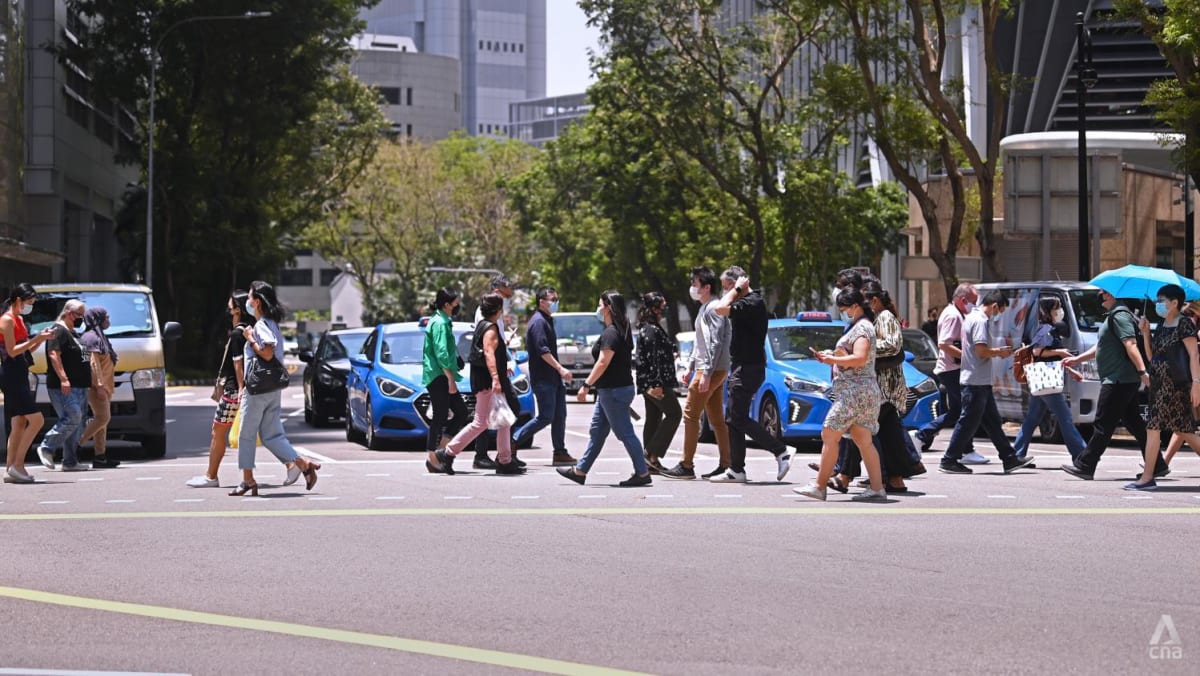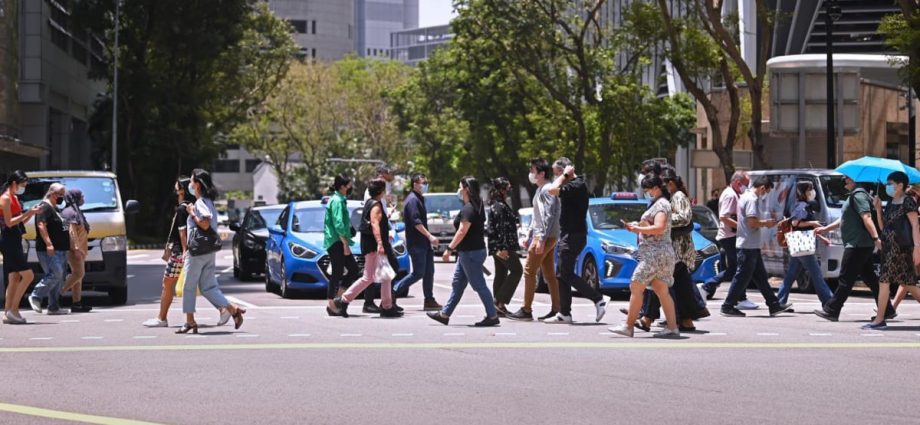
SINGAPORE: The COVID-19 infection wave driven by the XBB recombinant variant is clearly “coming down” said Health Minister Ong Ye Kung on Monday (Oct 31) adding that the country has most likely ridden through it successfully.
Speaking at the 20th anniversary ceremony of the Health Management International (HMI) Institute, Mr Ong noted that Singapore dealt with the XBB variant with no safe management measures and masking requirements in place.
He added that the multi-ministry taskforce was ready to reimpose indoor masking requirements and targeted vaccination-differentiated measures should the situation worsen.
“Fortunately, the infection numbers peaked and then declined much earlier than we modeled and estimated, and I think we can stand down these contingency plans, at least for now,” said Mr Ong.
As of noon on Sunday, 3,240 new COVID-19 cases were recorded. The week-on-week infection ratio was 0.66 – a number below 1 indicates that the number of new weekly COVID-19 cases is falling.
However, Mr Ong emphasised that Singapore must be prepared to reinstate some safe management measures if the country encounters an infection wave driven by another COVID-19 variant.
The Health Minister also said that the COVID-19 situation in Singapore has stabilised, but the country is in a new phase of the pandemic and warned against complacency.
With the evolution of the virus, there are now multiple sub-variants circulating in every society, noted Mr Ong.
“In Singapore, we have BA.1, BA.2, BA.4, BA.5, BA.2.175, BA.2.10, we have a few cases of BQ.1. And in such a situation, when so many subvariants are circulating, there is always the possibility that two of them meet, get married, combine and become something new – what we call a recombinant subvariant such as the XBB (variant),” he added.
He warned that a new recombinant variant could always take on characteristics of a parent variant that can lead to more severe illnesses.
Secondly, he emphasised that life in Singapore has returned to “pre-COVID normalcy” and the country has re-established itself as an international hub and open economy.
But he added that this aspect will make Singapore vulnerable to COVID-19 variants.
“Singaporeans have started to travel a lot, and we are hosting many conferences and events that create opportunities and jobs for our people. This also makes us vulnerable because whenever there is a new subvariant (which is) very transmissible, we can be one of the first cities in the world to experience it,” said Mr Ong.
Mr Ong added that the country must have contingency plans in place.
One key response would be the Singapore’s vaccine strategy – which recently rolled out the Moderna bivalent COVID-19 vaccine to those aged 50 and above.
Mr Ong noted that in the last month, two out of 100 infected persons aged 70 and above and not fully vaccinated either died or were admitted to the ICU.
About 53,000 individuals have taken the bivalent vaccine so far, he said in an update.
The Health Minister said he expects that the bivalent vaccines will be available to those in the younger age groups in a few weeks.
Earlier this week, the Ministry of Health (MOH) announced that the bivalent vaccine would be offered to healthcare workers in the public and private sectors from Oct 25.

